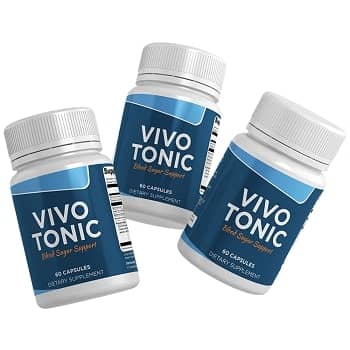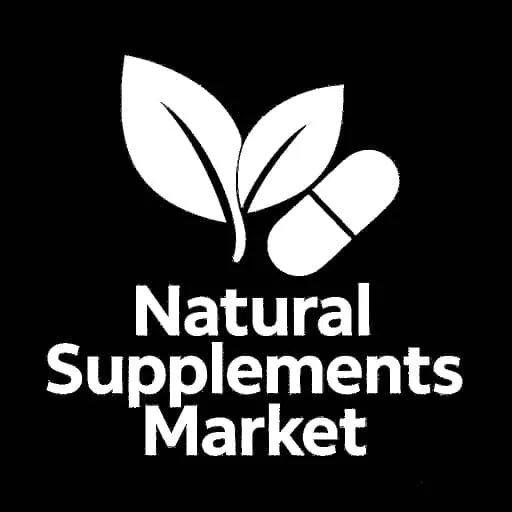If you’re searching for a natural supplement to support healthy blood sugar levels, you’ve probably come across Vivo Tonic. Marketed as an “11-in-1 vital blood sugar support formula,” Vivo Tonic promises a blend of antioxidants, minerals, vitamins and herbs inspired by a centuries-old recipe. In this review article I’ll break down what Vivo Tonic claims, what’s in it, who might benefit and the practical considerations (safety, dosing and buying). This is written to help you decide whether Vivo Tonic might be a product to consider.
Quick take: Vivo Tonic is positioned as a comprehensive, multi-ingredient supplement aimed at supporting healthy blood sugar balance. It contains familiar ingredients (banaba, berberine, chromium, zinc, alpha-lipoic acid, etc.) that are commonly used in blood sugar support formulations. As with any supplement, results vary and it’s best used alongside healthy diet and medical guidance.
Table of Contents
What is Vivo Tonic? Overview and product positioning
Vivo Tonic is described by its maker as an 11-ingredient supplement designed to “help your body maintain healthy blood sugar levels.” The marketing leans into a story of a Tibetan/Buddhist monks’ recipe from Kathmandu, combined with modern ingredient sourcing and manufacturing claims (USDA National Organic Program handling, FDA-registered facility).
The product is positioned as:
- A natural, non-habit forming formula (no stimulants or toxins)
- Vegan, non-GMO, gluten-free and free of unnecessary fillers
- A blend of antioxidants, minerals and botanicals aimed at metabolic and blood sugar support

Ingredient deep dive — what’s actually in Vivo Tonic?
Understanding an ingredient list tells you more than testimonials. Vivo Tonic highlights several active components. Below is a brief explanation of each and why it’s commonly included in blood sugar support supplements:
Banaba Leaf
Marketed here as a “sacred blood sugar regulator,” banaba leaves are often used in traditional systems and contain corosolic acid and other phytochemicals. Manufacturers include banaba for its purported ability to help maintain healthy blood sugar levels.
Corosolic Acid
Often cited as the key bioactive in banaba, corosolic acid is included in many supplements for its potential to support glucose metabolism.
Silymarin (Milk Thistle)
Silymarin supports liver health and because the liver plays a major role in glucose regulation, formulations often include it to support metabolic balance.
Berberine
A well-known botanical extracted from several plants, berberine is commonly used in blood sugar support blends. It’s a popular ingredient in many modern formulations due to its reported metabolic benefits.
Korean Ginseng
Ginseng is included for metabolic support and overall well-being. Premium ginseng varieties are expensive and sellers often highlight sourcing quality.
Green Tea Leaf (EGCG)
Green tea polyphenols, including EGCG, are frequently used for metabolic and antioxidant support.
Resveratrol & Cayenne Pepper
Resveratrol is an antioxidant often linked to cardiovascular and metabolic health. Cayenne (capsaicin) is included in small amounts in some formulas for circulation and metabolic stimulation.
Zinc & Chromium
Both are essential minerals. Chromium is commonly included in glucose-support supplements because of its role in insulin function; zinc is important for many metabolic processes and immune function.
Alpha-Lipoic Acid (ALA)
A potent antioxidant found in small amounts in foods like broccoli and spinach, ALA is often used for nerve health and metabolic support.
How Vivo Tonic is supposed to work
Vivo Tonic combines ingredients that target different aspects of metabolic and circulatory health:
- Botanicals (banaba, berberine, ginseng) aim to support glucose metabolism.
- Minerals (chromium, zinc) support insulin signaling and metabolic enzymes.
- Antioxidants (green tea, resveratrol, ALA, silymarin) reduce oxidative stress that can affect metabolic function.
The overall idea is a multi-pronged approach: reduce spikes, support healthy insulin activity, protect organs involved in metabolism (liver, nerves) and provide micronutrients that some people may be low in.
Who is Vivo Tonic likely best for?
Vivo Tonic is marketed toward adults who:
- Want a natural supplement to support healthy blood sugar levels as part of a lifestyle plan
- Prefer multi-ingredient formulations instead of single-ingredient products
- Are looking for a vegan, non-GMO supplement with no fillers or stimulants
It’s not marketed as a replacement for prescribed medications or medical care. If you have diagnosed diabetes, are on blood sugar-lowering medication, pregnant, breastfeeding or have a chronic condition — consult your healthcare provider before adding any supplement.
Safety considerations and practical tips
A few practical and safety points to keep in mind (important for buyers):
- Talk to your doctor first. Especially if you take blood sugar medications — some ingredients (like berberine) can interact with drugs or amplify effects.
- Watch for quality signals. Vivo Tonic’s marketing claims an FDA-registered facility and USDA handling. Look for third-party testing or a certificate of analysis (COA) where possible.
- Start slow. If you’re sensitive to botanicals, consider starting with a lower dose or spacing servings to monitor tolerance.
- Monitor your numbers. If you’re tracking fasting blood glucose or A1c, keep an eye on readings when adding any new supplement and report changes to your clinician.
Pros and cons
Pros
- Multi-ingredient formula that addresses blood sugar support from several angles
- Uses commonly accepted ingredients in the metabolic health space (berberine, chromium, ALA)
- Free of stimulants, vegan and gluten-free — pitched as a clean formula
Cons
- As with many supplements, clinical evidence for the exact blend isn’t usually publicly available
- Potential interactions with medications; not a replacement for medical care
Final verdict — is Vivo Tonic worth trying?
If you’re shopping for a comprehensive, natural supplement targeted at supporting healthy blood sugar levels, Vivo Tonic stacks up as a contender: it contains many recognized ingredients commonly used for metabolic support and markets itself as a clean, well-manufactured product.
That said, the sensible approach is:
- Treat it as a supplement, not a cure. It’s designed to support — not replace — medical care.
- Ask for proof. Look for COAs, dose transparency and clear instructions.
- Consult your clinician. Especially if you take medication or have a health condition.
If you’re ready to explore Vivo Tonic further, look for official product pages that show ingredient doses, lab testing and clear shipping/return policies. Those details help you make an informed purchase and are the final nudge for many buyers.


[…] The brand and recent press materials emphasize a blend of 5-HTP, green tea extract, ashwagandha and L-theanine as primary actives for appetite, mood and metabolic balance. […]